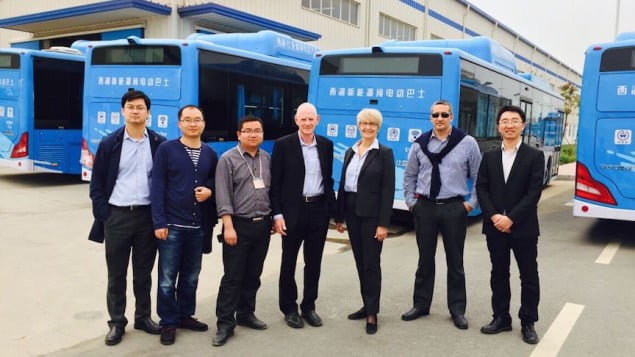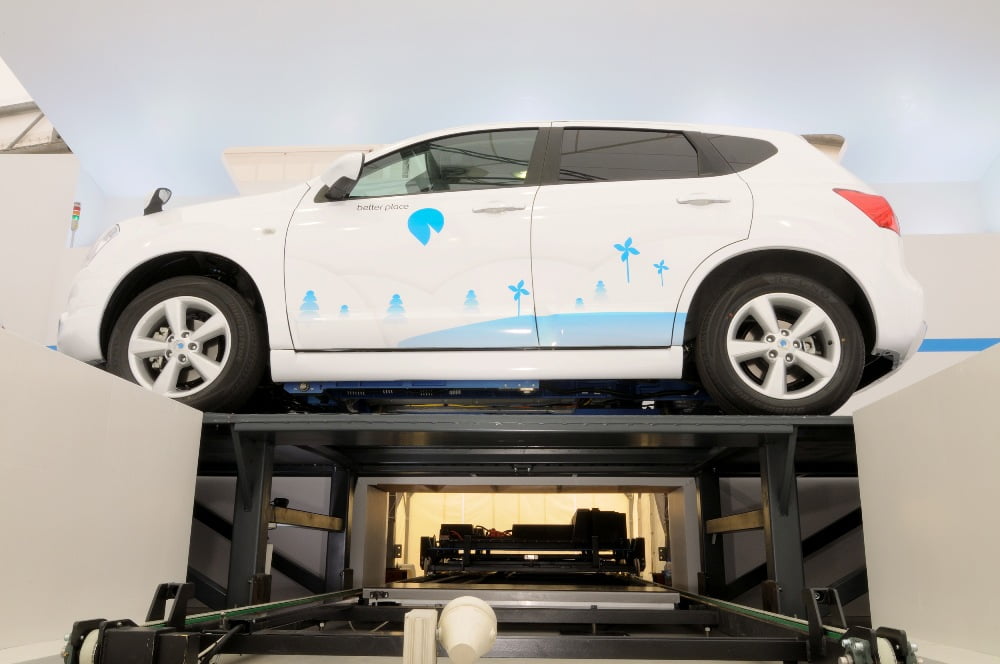This article was first published on The Times of Israel and was re-posted with permission.
It never took off the way CEO Shai Agassi – and the many Israeli government and business officials who supported it – thought it would, but the technology designed for now-defunct Better Place’s battery swapping program for electric cars will finally have its day in the sun.
Ziv Av Engineering (ZAE), one of Israel’s largest high-tech products development firms, will design and supply battery switching stations for electrically powered vehicles in Nanjing, the capital of Jiangsu Province in Eastern China. ZAE has signed a cooperation agreement with Chinese company Bustil (BYD), which holds the franchise for charging and switching batteries on electric vehicles in the city.
SEE ALSO: China Partners With Better Place On Electric Vehicle Center
While electric vehicle use is being promoted by countries around the world, the battery-switching system – in which drivers would “refuel” their vehicles at a service station by swapping a spent battery for a fresh one, instead of plugging vehicles into a wall to recharge batteries – was tried in only a few places, most prominently in Israel and Denmark, with Israeli firm Better Place the main proponent of the technology.
Better Place declared bankruptcy at the end of May 2013, about a year and a half after it began selling cars. The reasons for the bankruptcy surrounded the company’s failure to sell enough cars to make further roll-outs of the battery-switching stations economically viable; as a start-up, Better Place had a voracious capital appetite, burning through nearly a billion dollars but selling barely 1,500 vehicles. As the rosy predictions of the company failed to materialize – CEO Shai Agassi said that half the cars sold in Israel would be electric-powered by 2016 – investors backed off, and the company was struck a fatal blow about a month before declaring bankruptcy when its vehicle manufacturing partner, Renault, sad that it was pulling out of the deal to supply electric vehicles powered by battery-switching technology, and instead moving toward the standard home plug-in technology.
What failed to catch on in Israel – or anywhere else – could have a second life in China. Thousands of electric buses operate in Nanjing, a city of eight million, and the city has been seeking ways to cut down on the time and effort needed to recharge the vehicles.
To continue reading this article on the TOI site, click here.
Photos: Ziv Av Engineering
Related posts

Editors’ & Readers’ Choice: 10 Favorite NoCamels Articles

Forward Facing: What Does The Future Hold For Israeli High-Tech?

Impact Innovation: Israeli Startups That Could Shape Our Future





Facebook comments